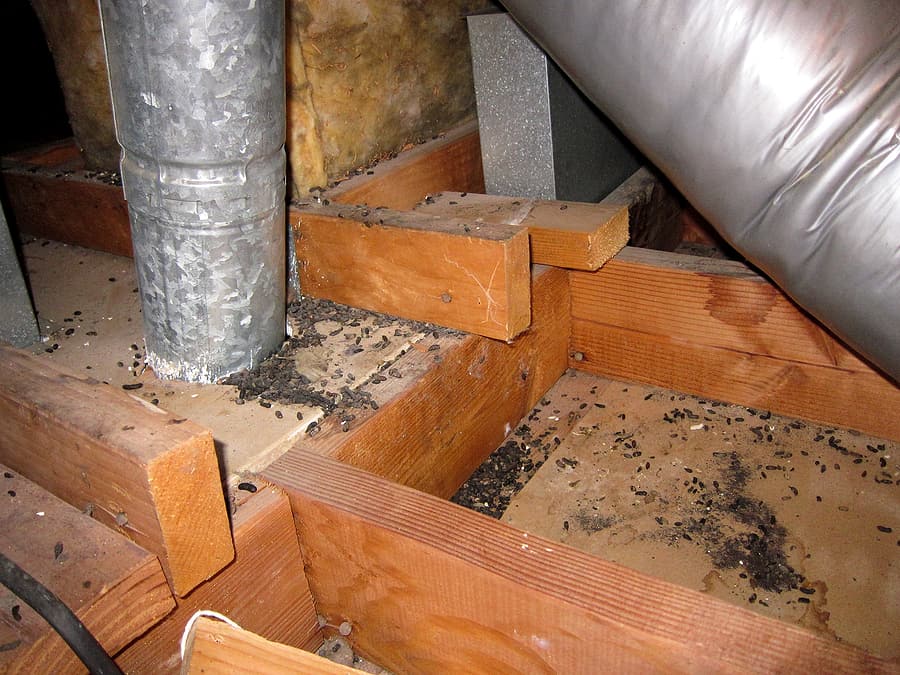Rodents can wreak havoc on your home, chewing through wires and insulation and contaminating surfaces with their urine and feces. Rodents are also known for carrying and transmitting serious diseases to humans. You may not see a live rodent in your home until an infestation is already established. It is important to know the signs of a rodent infestation so you can identify the problem before it gets out of control. Here are 9 warning signs of a rodent infestation to look for in your home.
- Rodent droppings around food packages, in drawers and cupboards, and under sinks.
- Nesting material such as shredded paper, fabric, string, and dried plant matter.
- Signs of chewing on food packaging.
- Holes that have been chewed through floors and walls that these critters can use as an entry point.
- Stale smells coming from hidden areas of your home such as wall voids, attics, crawlspaces, etc.
- Rub marks, which are oily marks left behind where rodents travel along walls.
- A strong, musky urine odor.
- Scampering, scratching, or gnawing sounds, especially at night.
- Unusual pet behavior such as becoming extremely alert or anxious, excessive barking, or pawing at surfaces under appliances or furniture.
Prevention is critical to keeping rodents and other pests from taking over your home. Keep them out of your home with these rodent prevention tips:
- Seal any holes inside or outside your home with steel wool, lath screen, lath metal, cement, hardware cloth, or metal sheeting. Some common areas to check for holes include in the roof among rafters, gables, and eaves; around windows and doors; around foundations; in attic and crawlspace vents; under doors; around holes for electrical, plumbing, cable, and gas lines; inside and under cabinets; inside closets near floor corners; around fireplaces; around pipes under sinks and washers; around hot water heater and furnace pipes; around floor and dryer vents; in basement and laundry room floor drains; and between floor and wall junctures.
- Remove potential nesting sites such as leaf piles and deep mulch.
- Keep garbage in containers with tight-fitting lids.
- Turn compost piles to cover any newly added food.
- Bring pet food and water bowls in overnight and empty birdfeeders daily. Try to avoid feeding outdoor birds, if possible, while you have an active infestation.
- Fix gaps in trailer skirting and use flashing around the base of your home.
- Store food in thick plastic or metal containers with tight-fitting lids.
- Keep outdoor cooking areas and grills clean.
- Elevate woodpiles, hay, and garbage cans at least 1 foot off the ground.
- Get rid of any old tires, vehicles, etc from your property.
- Keep your grass mowed short and shrubbery well trimmed, especially if it is within 100 feet of your home.
If you suspect you have a problem with rodents or any other pest, your local pest control company can perform a thorough home inspection which will help determine the type of rodent you are dealing with, their patterns of activity, what’s attracting them to your home, and which treatment method is best for elimination and ongoing prevention.
You May Also Be Interested In:
What Is The Most Effective Termite Treatment?
5 Pests That Can Destroy Your Lawn

